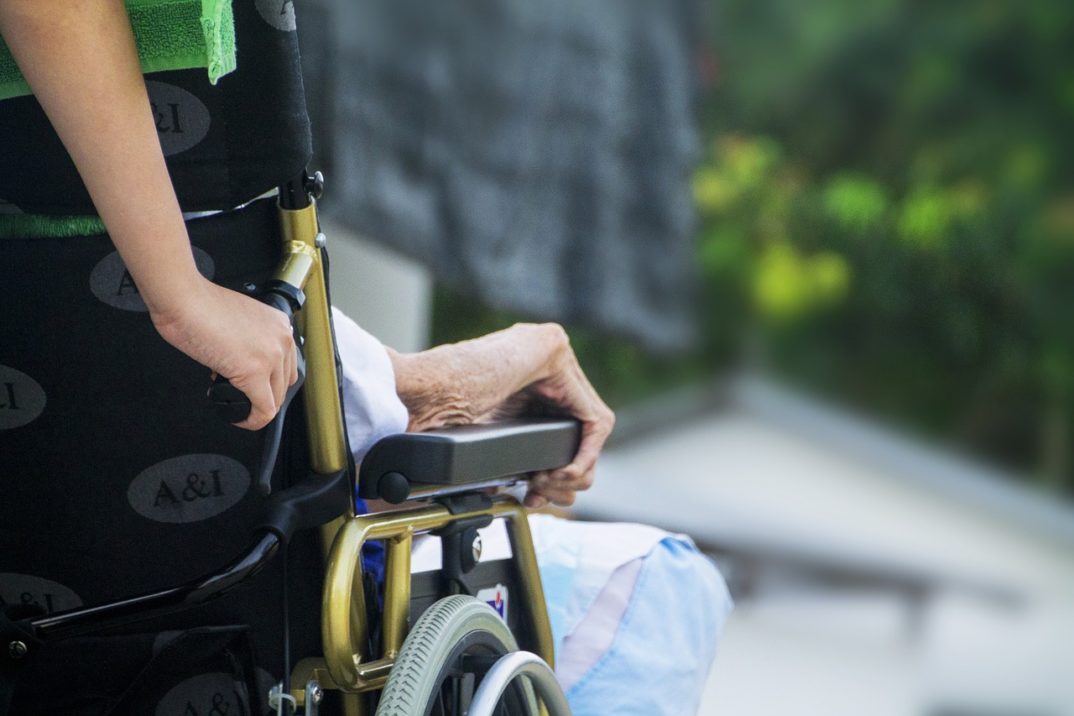In Caring for Dementia Patients, Testing the Limits of Patient Autonomy
NPR recently reported on a new advance directive (AD) form developed by a New York end-of-life agency. This AD enables patients to express in advance the preference that they would not want to be given food or water, should they be diagnosed with severe dementia. This AD broaches new territory, as the patient’s decision, as expressed on the form, implies that they would not want to be given any food or water, even if they were still cooperative in eating food and appeared to want it. Such a possibility has not yet been formalized in an AD for dementia patients.
Advance Directives are documents prepared by patients in advance of medical situations where they are too incapacitated to express their wishes. ADs tell healthcare professionals and family members how the patient would want to be treated in certain conditions. Typical subjects covered in advance directives are designations of certain individuals to make health care decisions for you while you are incapacitated (called health care proxy or durable power of attorney documents) or specific instructions regarding when to use dialysis and breathing machines, resuscitation in the event of cardiac arrest, and tube feeding.
The new AD for patients with severe dementia would only come into effect when the patient was diagnosed with moderate or severe dementia, characterized by The Functional Assessment Staging Test (FAST), as stages of dementia where patients need help putting on clothes, bathing, and using the toilet (stage 6) and are speaking only 5-6 words a day (stage 7).
ADs are celebrated as instruments that protect and promote the autonomy of the patient. They provide a person the ability to extend self-control over what happens to their bodies to situations where they cannot presently exercise such a function. Moreover, they bring back under control of the individual patient those decisions we typically view as most important for an individual—decisions about when and how to die. They also help prevent tragic situations, where an inevitable death is needlessly prolonged, causing additional suffering to the individual and his family members.
However, ADs also set up a quasi-conflict between the autonomous person in the past who signed the AD and the no-longer autonomous person in the present subjected to the decisions encoded in the AD. Though these “two” persons are the same body, it is not clear why the preferences of the former person should outweigh whatever the preferences are or may be of the current person. Moreover, given the incapacitation of the patient who may be subject to an AD. It is usually difficult, if not impossible, to “wake” the person to ensure their preferences are the same. Moreover, the situation of patients with severe dementia makes this more difficult. Those with moderate to severe dementia may still be able to express desires to eat or not to eat, even if their abilities to verbalize these desires have faded.
As so often is the case, insight into difficult moral dilemmas can be achieved by considering the rationale underlying the important moral values at stake. In this conflict (as is the case in so many others), autonomy is in question. ADs promote autonomy by protecting patient preferences. However, the AD for severe dementia potentially pits the preferences of the past patient against his future self with dementia. In Life’s Dominion: An Argument about Euthanasia, Abortion, and Individual Freedom (New York: Knopf, 1993), Ronald Dworkin considers two rationales for the value of autonomy. On one view—the evidentiary view—we protect autonomy because people often know what is best for themselves. As such, even if we outwardly think that a person has made a bad decision against his own interests, we do not intervene. This is because, as a rule, we believe that we are more liable to have made a mistake in our judgment about this person’s interest than he himself is liable.
If we accept the evidentiary view, then we would not side with the preferences expressed by the present patient with dementia, for a person with severe-to-moderate dementia would not likely know better what is in his interests than would this person’s doctors and caretakers And yet, the evidentiary view does not appear to support the position of the past autonomous self, making decisions through the use of ADs. People may be the best judges of what is in their interest now and in the near future, but it is unlikely that they can reliably judge what will be in their interest when they enter the radically different state of advanced dementia. As such, the evidentiary view does not help us unravel our dilemma.
Dworkin provides a competing rationale for protecting autonomy—the integrity view. On the integrity view, autonomy is respected because autonomy protects our capacity to shape our own lives according to our values and personal character. Its importance is independent of our welfare interests; we think it important for cognitively competent adults that the life they have is of their own making—not the making of another person (be him a tyrant or enlightened despot).
The integrity view still does not favor respecting the expressed preferences of the present patient with dementia because people who have severe to moderate dementia no longer have the cognitive capacities viewed as a prerequisite for autonomy. If you do not have the capacity to shape your own life according to decisions based on consistent character or deeply held values, then there are no autonomy rights there to protect. However, the integrity does appear to favor the precedent autonomy of ADs. Advance Directives seem clearly designed to help individuals maintain control over the shape of their life.
In closing, let us note that autonomy may not be the only moral value that matters in this situation. What makes this AD for severe dementia so controversial is what it asks of the caretakers themselves: to not feed a person who needs food to survive and still willingly takes the food. Most people, I suspect, will have a strong intuition that caretakers are morally obligated to provide people in this situation the nourishment they need to live. Though autonomy is important, the perspective of those tasked with caring for individuals with severe dementia ought not be left out of the conversation.





